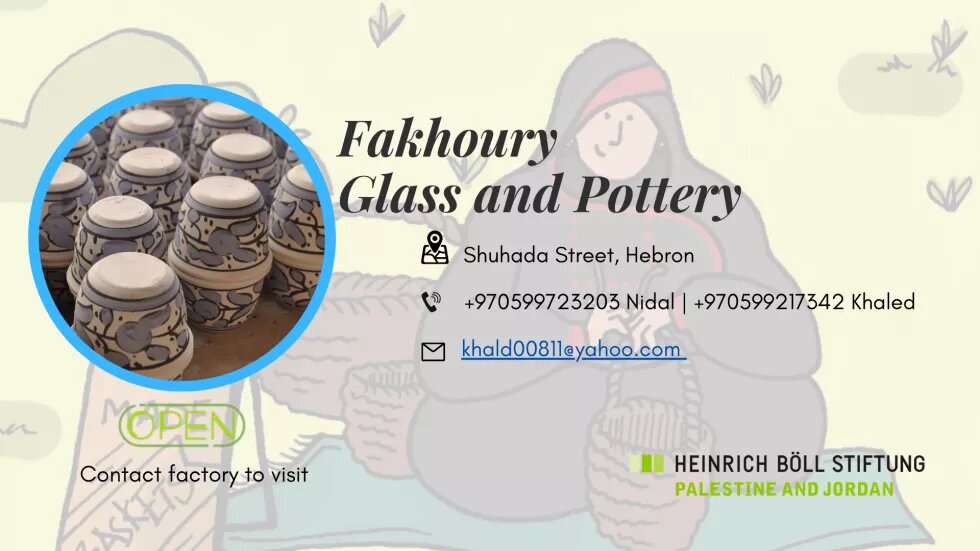
Nestled in infamous Shuhada Street in Hebron, you find the Fakhoury Glass factory. It is one of the few shops you see open on a more regular basis, due to the restrictions of the Israeli army and the presence of armed Israeli settlers. The area is covered with signs in Hebrew, showing the intended exclusive character for the area, as Israeli settlers are only allowed to roam freely while the Palestinians are denied access. Al-Shuhada Street was closed off in the aftermath of the Ibrahimi massacre of 1994, when a Jewish settler stormed into the Ibrahimi Mosque with a machine gun killing 29 Palestinians in cold blood. This street used to be the central market in Hebron and was the heart of the old city. Today, a few shops remain open while the rest have been forced to close by the Israeli army. In an act of defiance to the occupation and its policies, Nidal Fakhoury asserts how he would never close his shop despite the fact that business has become practically non-existent on this street.
His colourful shop in this ghost street is an inviting beacon amidst the destruction and noticeable signs of racism and apartheid around him. The Fakhoury family is a family of potters, as the family name means ‘potter’ in Arabic. With such a historical and rich family tradition, Nidal is determined and proud to be keep the factory and store going in the face of all the intimidation and threats he faces. His shop faces a restaurant that is filled with Israeli settlers and ‘tourists’ that would not consider setting foot in his store, but Nidal says that whatever happens, the store will remain open to visitors, shoppers, and solidarity activists.
The pottery industry in Hebron is well known and colourful products can be found in hundreds of shops in Hebron, Bethlehem, Jerusalem, and beyond. It is astonishing to see how these factories, run by families with a long history in the artisanship, are still operating, producing beautiful products, and fighting off competition from cheap, dull and mechanically produced products. What makes the local pottery industry special and helps it persist is that its local and readily available raw materials. Nonetheless, it requires real skill to produce the handmade paintings and colour arrangements that define its true quality, something that we should strive to preserve.
The Palestinian pottery industry is one of a kind, and who among us does not wish to own some of it to turn our kitchens or living rooms into vibrant and culturally rich spaces?
____________________________________________________
Product Selling Points: On location.